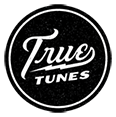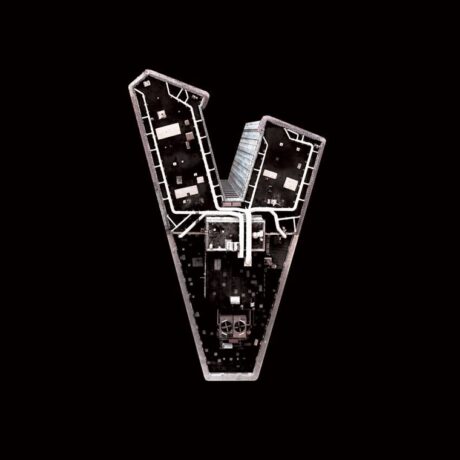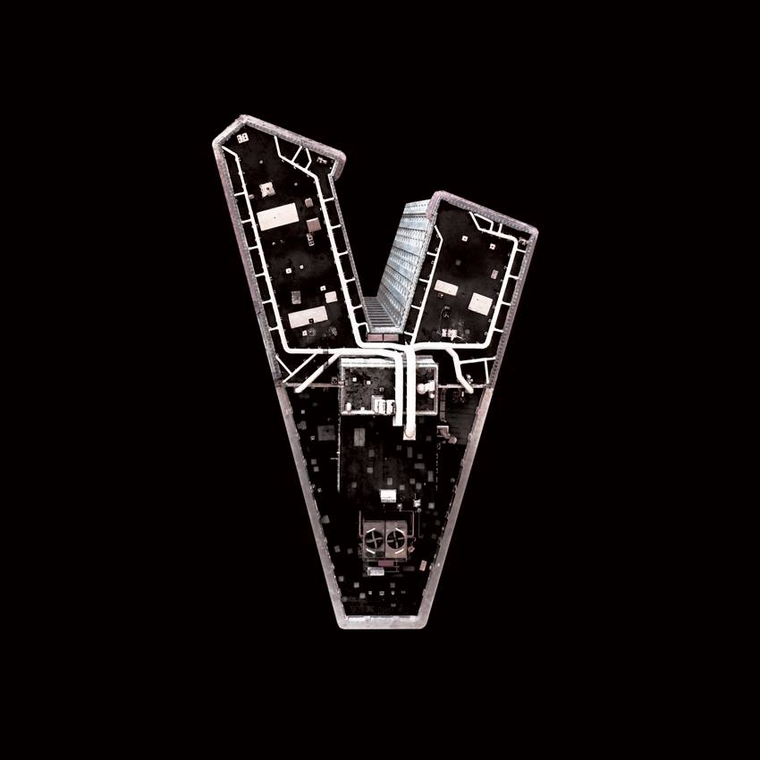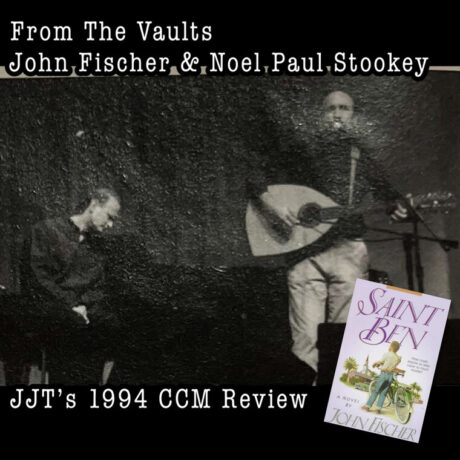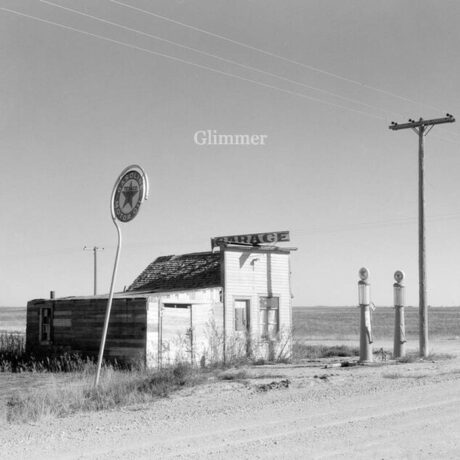Vector: Still VITAL 26 Years Later
Vital
Vector
Mezzo Music
(Reviewed By Brian Quincy Newcomb)
It’s been 26 years since we last heard from Vector, a band that arrived on the scene via Exit Records, the Sacramento-based label that introduced Charlie Peacock and The 77’s to the world. Exit was one of several label upstarts that believed Christian artists could have a broader impact if their albums were licensed to major labels and sold in mainstream record stores, not just through Mom & Pop Bible bookstores (see also: What? Records). As such, Exit artists generally, and Vector specifically, raised the bar for Christian artists by making music that was creative and unconstrained by the worries of pleasing conservative youth pastors and by bringing an artful, edgy approach to their subject matter. They explored issues and ideas related to faith while largely avoiding the churchy cliches that dominated the Christian music industry as a whole.
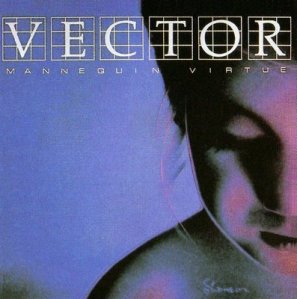
That creative freedom and artistic edginess made the band’s 1983 debut, Mannequin Virtue, fit in nicely alongside New Wave albums by The Police, Eurythmics, and The Fixx. It also benefitted from the keyboard prowess of Peacock, who sang lead on his composition “Running From the Light,” and who would debut his solo album Lie Down in the Grass a year later. Steve Griffith, the primary lead vocalist, also played bass, Jimmy Abegg played guitars, and Aaron Smith, on loan from the 77’s, played drums. On the whole, Vector had a ground-breaking debut, especially for a band in the Christian marketplace. Mannequin Virtue may not have brought the attention from the pop market for which Vector had hoped, but it tapped into a real hunger by listeners on the edges of the ccm marketplace that were looking for relevant, meaningful rock artists that made sense in the real world.
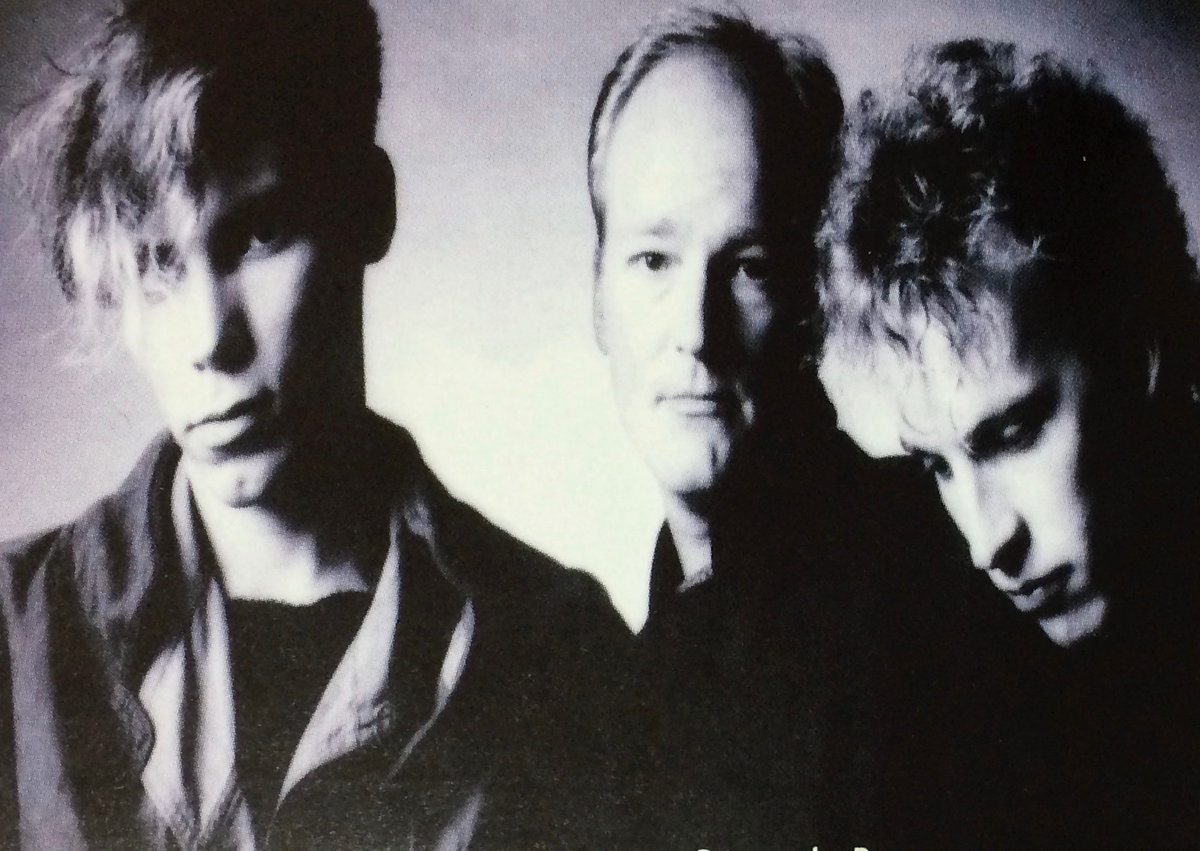 In 1985, Griffith and Abegg were joined by drummer Bruce Spencer for their sophomore effort, Please Stand By. Produced by Chuck Wild, (who was with New Wave band Missing Persons at the time,) the album leaned heavily into electronics, with smart synth programming that was all the rage in the middle of that decade. Ultimately, however, it was Griffith’s melodic presence, and the urgency of Abegg’s guitar work that has best stood the test of time. They delivered another album, Simple Experience in 1989, and then regrouped again in 1995 for Temptation. While Griffith has been behind the scenes serving as an engineer on numerous 77’s projects, Abegg went on to play guitar with Charlie Peacock’s big electric band, and acoustic for his trio, with the late vocalist Vince Ebo, before going on the play in Rich Mullins’ Ragamuffin Band throughout the ’90s alongside Rick Elias, Mark Robertson, and Aaron Smith. In the middle of the 2010s, Abegg was the guitarist in Steve Taylor’s Perfect Foil band, while continuing his work as a visual artist, painter, and album designer whose works belie the fact that in recent years he’s lost his sight, and is now considered legally blind. (Don’t miss the episode of the True Tunes Podcast that features an in-depth conversation with Abegg about his life, career, and current efforts – as well as two cuts from this album.)
In 1985, Griffith and Abegg were joined by drummer Bruce Spencer for their sophomore effort, Please Stand By. Produced by Chuck Wild, (who was with New Wave band Missing Persons at the time,) the album leaned heavily into electronics, with smart synth programming that was all the rage in the middle of that decade. Ultimately, however, it was Griffith’s melodic presence, and the urgency of Abegg’s guitar work that has best stood the test of time. They delivered another album, Simple Experience in 1989, and then regrouped again in 1995 for Temptation. While Griffith has been behind the scenes serving as an engineer on numerous 77’s projects, Abegg went on to play guitar with Charlie Peacock’s big electric band, and acoustic for his trio, with the late vocalist Vince Ebo, before going on the play in Rich Mullins’ Ragamuffin Band throughout the ’90s alongside Rick Elias, Mark Robertson, and Aaron Smith. In the middle of the 2010s, Abegg was the guitarist in Steve Taylor’s Perfect Foil band, while continuing his work as a visual artist, painter, and album designer whose works belie the fact that in recent years he’s lost his sight, and is now considered legally blind. (Don’t miss the episode of the True Tunes Podcast that features an in-depth conversation with Abegg about his life, career, and current efforts – as well as two cuts from this album.)
So, with a lot of time passed, and significant amounts of water under the bridge, Vector returns with a new album, and the good news is that the band sounds exactly as the title suggests: Vital. The florid keyboard flourishes are gone, for the most part, replaced largely by crunchy electric guitar power chords and bombastic bursts of live drums. Griffith is in strong voice, his pristine tenor sitting high enough to bring his memorable melodies home to roost. And for additional spice, Vector gets some help on guitar from the 77’s, with contributions from bass player Mark Harmon and guitarist Michael Roe. Most importantly, nearly four decades after the band’s debut, Vector still rocks, as you hear in the grinding, unrelenting punch of a song like “Plowed Me Up,” where the guitars are worthy of a grad school course on how rock & roll should be played.
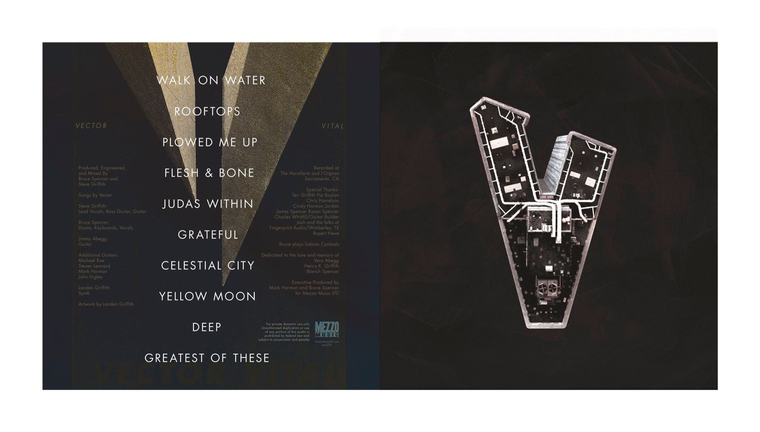
In “Flesh and Bone,” the melodic opening hints at the band’s earlier New Wave vocal influences with poppy “do do do’s,” before opening up to a more aggressive rock sound. Another standout, “Yellow Moon,” delivers some solid, if conventional rock song chording, in service of a “love that teaches in a silent way,” but mixes in great vocals with a lovely Hammond organ swell at just the right moment. It speaks with a subtle authority, even as the lyric suggests “I got nothing to say.” Elsewhere, the artistic focus of Vector has moved a lot closer to the spiritual language of the Christian church, with songs like “Walk On Water,” “Judas Within,” “Celestial City,” and the closing reflection on 1 Corinthians “love chapter” 13, “Greatest of These.” Where a fun, funky song like “Deep” focuses on the cultural divisions in our political discourse, with a somewhat vague, simplistic take on complex and controversial issues, the record concludes with a reminder that the greatest thing we have to share has not changed – love.
So, as they say in “Rooftops” – “shout it out to all who will listen” – Vector is back, with a message about “a gift of love without misgivings/a gift of faith without any strings.” Long-time fans and any newfound rockers to the fold, have every reason to be “Grateful,” because these long-time friends remain, “Vital.”
–Brian Quincy Newcomb
Order Vector’s VITAL from Mezzo Music HERE
